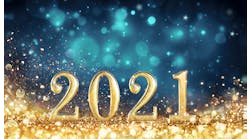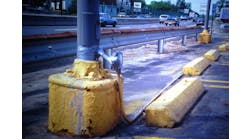When it comes to training, Midwest ENERGY Association (MEA), Eagan, Minn., believes in the old saying “two heads are better than one” — try 14 heads to be exact, and that's just so far. Enlisting the help of each of its consortium members (Commonwealth Edison, Consumers Energy, DTE Energy, KCP&L, NiSource, Vectren, We Energies, Madison Gas & Electric, City Utilities of Springfield, Lincoln Electric System, Michels Power, Midwest Energy, Inc., Omaha Public Power District, and the Utility Workers Union of America), MEA recently created an industry coalition to establish a common electric line specialist training program.
Although every utility has established its own unique training efforts, the theory is that working together expands the learning potential few could afford on their own. Kicked off in mid-February, the program will provide utilities, electrical contractors, and vocational schools with industry consensus content, including instructor and student learning materials in print and multi-media formats, designed to speed learning and enhance employee retention among all levels of workers across the organization — from pre-apprentices to apprentices to post-journeyman. The final program will reflect the combined expertise of all participating companies, yet allow each company to customize the content to its own specific work procedures, explains Patrick Van Beek, MEA president. “The online option allows current employees to refresh their training 24/7,” he says. “Vocational schools will no longer have to create content from scratch; they can rely on the new electric program curriculum, knowing that it is exactly what the industry wants.”
MEA's initiative will produce a full complement of classroom and online courses for overhead and underground line work. Nearly 30% of the content is already complete, with the balance to be created over the next 24 months. The overall package will parallel the complete gas field skills program that hundreds of companies have been relying on for DOT compliance and general training since the mid 1990s. The gas package has been consistently updated to match DOT requirements and is now in classroom, CD-ROM, and online formats at utilities, contractors, and vocational schools.
“This is a significant requirement for natural gas companies,” says John Gann, VP of Electric Services at MEA. “Gas employees have to be able to document their training and capability to work on covered tasks in the gas industry. Even in the absence of an actual rule being in place on the electric side, our members came to us and said this is working on the gas side so we need something similar. It's possible we will see increased regulation of electric worker competency in the future, and this initiative will position our members to collectively and proactively respond to it, should it happen. It's also quite possible that at some point in the near future, utilities will have a program in place that says, before we're going to let you work on our system, you've got to have a certain level of documented competency, of which this initiative could be one significant element.”
That's where electrical contractors come into play. “Like utilities, contractors are going to have crews out there working — crews that must be competent, trained, and tested,” he says. “Although our consortium members are primarily utilities, we do anticipate the day when electrical contractors will eventually be involved with this program a great deal.”
For more information, visit www.midwestenergy.org/



